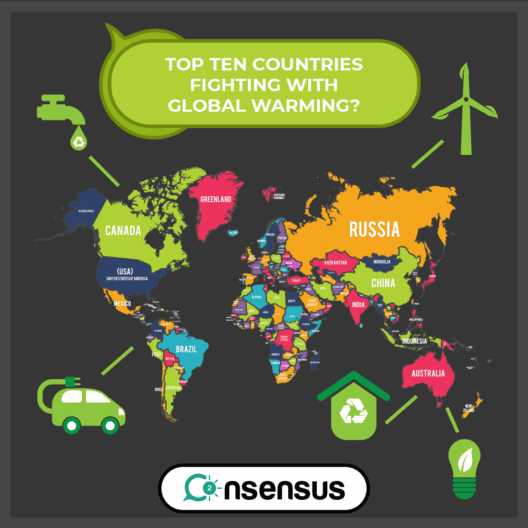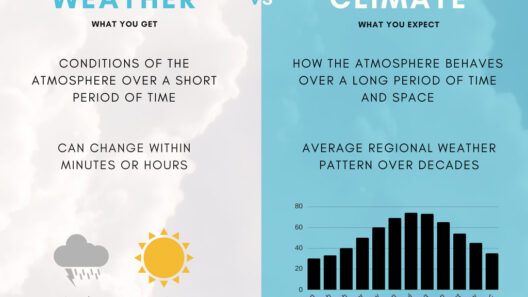The Paris Climate Agreement represents a pivotal point in the global effort to combat climate change. Adopted in December 2015, this international treaty aims to unite countries in a collective endeavor to mitigate the perilous impacts of climate change, establish adaptable strategies, and pursue sustainable development. The agreement drafted under the United Nations Framework Convention on Climate Change (UNFCCC) signifies a profound shift in the global discourse surrounding climate policy, emphasizing collective action, accountability, and an unwavering commitment to preserving the planet for future generations.
Understanding the core principles of the Paris Climate Agreement necessitates a closer examination of the scientific research underpinning its formation. Climate change, primarily driven by greenhouse gas emissions from human activities such as fossil fuel combustion and deforestation, poses existential threats to biodiversity, human health, and global economies. The Intergovernmental Panel on Climate Change (IPCC) has underscored that failure to limit global warming to well below 2 degrees Celsius above pre-industrial levels could trigger catastrophic climate events, including more severe weather patterns, rising sea levels, and irreversible damage to ecosystems. The Paris Agreement articulates a decisive commitment among nations to avert these dire outcomes.
The Agreement’s marquee feature is its goal of limiting global temperature rise to 1.5 degrees Celsius above pre-industrial levels, a target that embodies a radical departure from business-as-usual practices across the globe. To achieve this ambition, countries are required to submit nationally determined contributions (NDCs) that outline their specific climate action targets. Unlike previous climate accords, which imposed legally binding obligations, the Paris Agreement operates on a framework of voluntary participation, wherein nations are encouraged to enhance and refine their commitments every five years. This “ambition mechanism” instills a sense of dynamism in climate action, urging countries to strive for greater reductions in emissions over time.
Moreover, a cornerstone of the Paris Agreement is its inclusivity. It recognizes that climate change transcends borders and socio-economic divides, imposing a dire threat on vulnerable populations in developing countries. The agreement thus emphasizes equity, proposing that richer nations should provide financial assistance and technological support to aid developing countries in their climate endeavors. This component underscores a profound recognition that climate change exacerbates existing inequalities, and a concerted response is essential to addressing both environmental and social justice.
The essence of the Paris Agreement also lies in its transformative potential for reshaping energy systems, economies, and societal norms. The renewable energy revolution stands at the forefront of this transition. Countries are now compelled to re-evaluate their energy sources, gradually phasing out fossil fuels in favor of cleaner alternatives such as wind, solar, and hydropower. This not only mitigates emissions but also paves the way for innovative technological advancements, job creation in green sectors, and enhanced energy security.
Nevertheless, the efficacy of the Paris Agreement relies heavily on the political will of nations to transcend partisan divides and prioritize long-term environmental health over immediate economic gains. The recent trend of climate populism poses significant barriers, with some governments opting for regressive policies that prioritize short-term profitability at the expense of sustainable practices. The world must remain vigilant and challenge these narratives with data-driven arguments and demonstrable success stories of sustainable development.
Public engagement plays a critical role in the success of the Paris Agreement. Grassroots movements, advocacy campaigns, and educational initiatives galvanize a sense of urgency and accountability within communities. As awareness of climate impacts burgeons, so too does the pressure on policymakers to take decisive action, akin to a ripple effect. Citizen involvement fosters dialogue, leading to innovative solutions and reinforced commitment to climate goals at local, regional, and national levels.
As we reflect on the implications of the Paris Climate Agreement, it is imperative to recognize that it is not merely a treaty but a clarion call to action. It beckons nations to transcend geographical and political boundaries, fostering collaboration in pursuit of a sustainable future. The commitments laid forth underscore the notion that, while the challenge of climate change is formidable, the solutions are within reach if we embrace collective responsibility.
Yet, the mere existence of the agreement does not guarantee success. The future hinges on a myriad of factors, including the adoption of robust policies, market incentives for renewable energy, and a steadfast commitment to fostering resilience in vulnerable communities. As the world teeters on the brink of a climate crisis, the time for action is now. Societies must harness their ingenuity, boldness, and tenacity to overhaul systems that perpetuate environmental degradation.
In conclusion, the Paris Climate Agreement stands as a testament to humanity’s indomitable spirit and commitment to addressing climate change. It invites nations to envision a world wherein economic growth coexists harmoniously with environmental stewardship. As the global community grapples with fundamental questions about our relationship with nature, the path forward demands courage and cooperation. Only through unwavering commitment and proactive measures can we steer clear of climatic chaos, creating a sustainable legacy for generations unborn.







